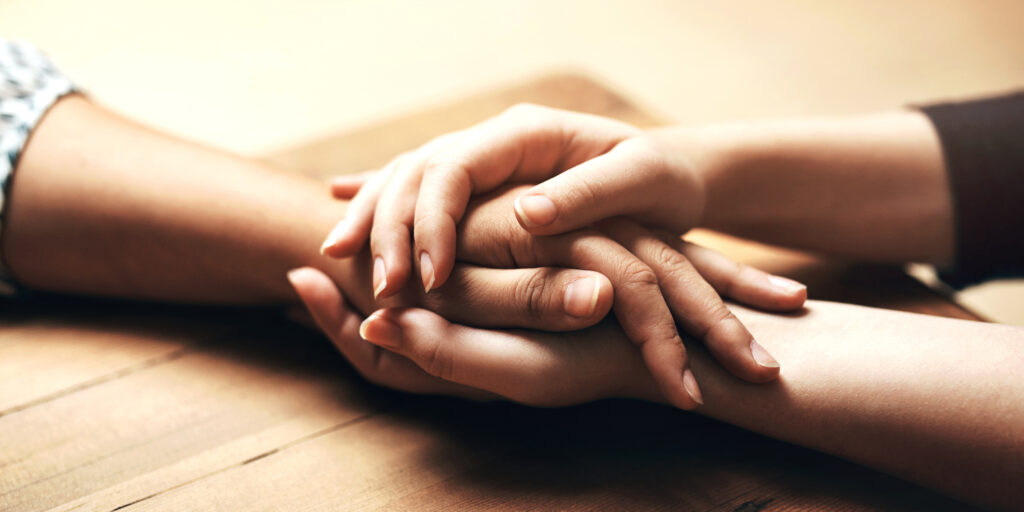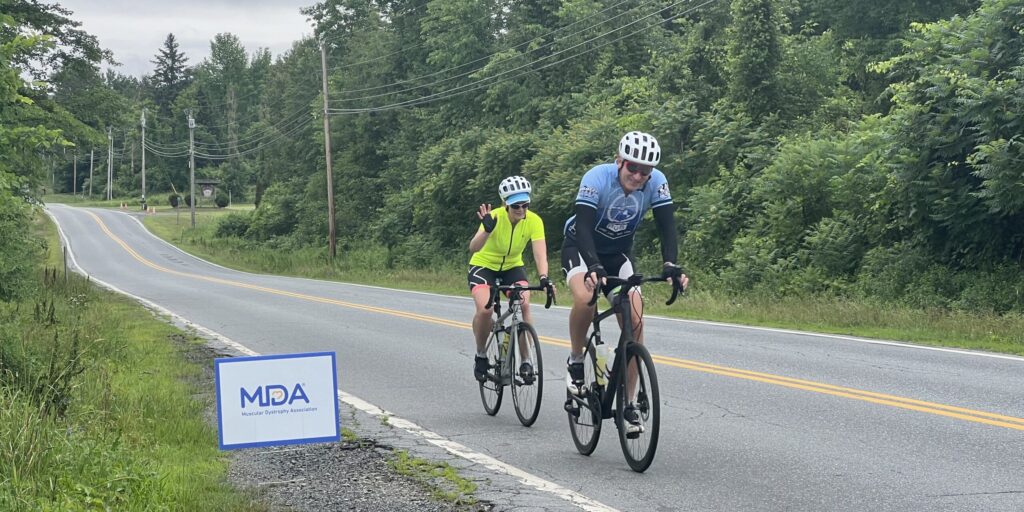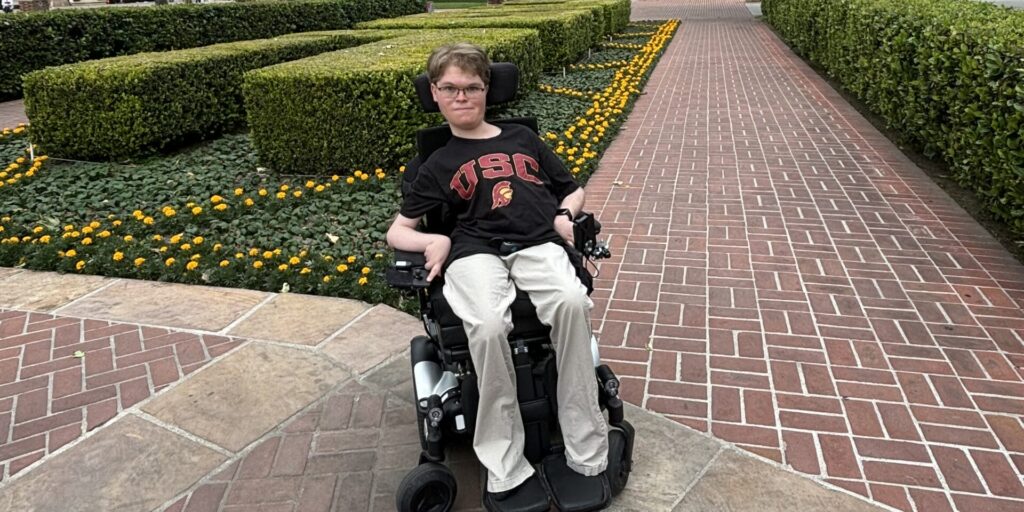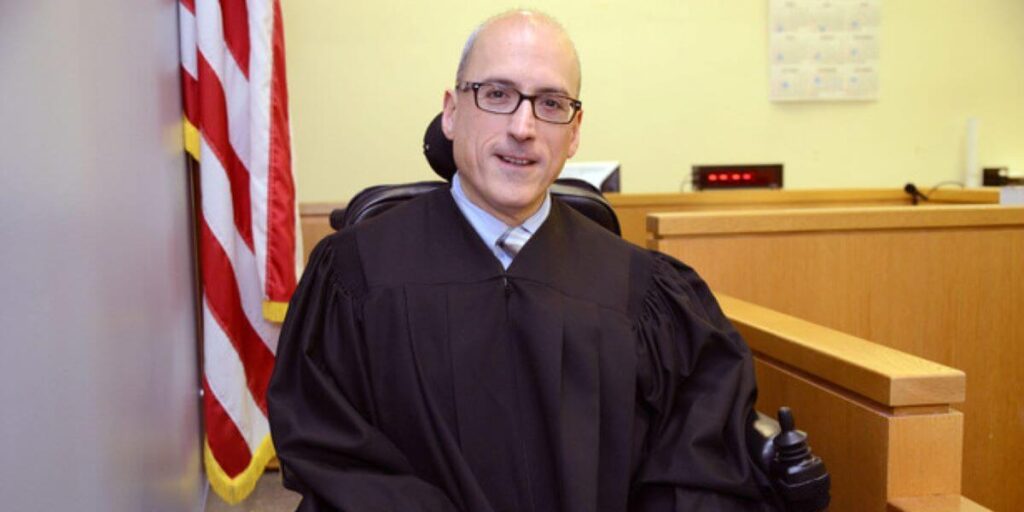
The Year of Independence
By Maggie Callahan | Wednesday, May 4, 2022
Claiming Success: A Q&A about achieving your goals
As we use our collective voice to effect change in 2022, the Year of Independence is the perfect time to celebrate individuals in our MDA community who are shattering expectations and forging forward to achieve their goals.
The personal story of the Honorable Robert Pipia, a judge in the District Court of Nassau County, New York, who lives with an undiagnosed neuromuscular disease, is one filled with determination, resilience, and advocacy — for himself and others.
From playing competitive wheelchair hockey and moving away from home for college, to succeeding in law school and pursuing a career as a district judge, his achievements prove how far believing in yourself and working hard can take you. We asked Judge Pipia to tell us more about his journey and what he’s learned along the way.
Was there ever a question in your mind growing up that you would be able to go to college and have a career?
As children, my brother, who lives with the same neuromuscular disease, and I went to MDA Summer Camp. And we each came back in one piece. That taught me when I was a kid that I could go away and not be with my parents for a while.
When I was in high school and college, the questions were: Would I be working? Would I have my own residence? Would I be able to live on my own? But I saw my brother go to college before me, and then I was the first one in my family to leave and go to college farther away. I had to fend for myself. So, in that regard, you’re thrown into it, and you have to sink or swim.
I got through all this and I found that I could live independently away from my parents. Then my questions moved to a different level: Will I have a romantic relationship with somebody? How will I be viewed in the workplace? How far am I going to be able to succeed? Every decade things have gotten better for people with disabilities, but I wondered, were people really looking for the guy in the wheelchair to be in charge of their multimillion-dollar legal case?
Tell us about your decision to pursue a law career.
It had to do with necessity and my personal experiences. I went to college to become an accountant. But that ended up not being a good fit because it involved a lot of travel and conducting audits in the field, and that was just not conducive to somebody in my situation. The extracurricular activities I did in college were about advocacy. I was president of the University Action for the Disabled and I got involved with the student government and represented people who lived off campus. Through these experiences, I learned about what the law actually was and tried to implement it.
I also got involved with some community organizations that were advocating for people with disabilities. At certain points in my life, I’ve had to advocate for myself in different systems, like Social Security or the state Medicaid system. So, I was teaching other people what they needed to do at a fair hearing, like what evidence they needed to get together, what arguments were going to be used. Someone said, “You know, you’re looking for something to do, and you seem to have the aptitude for this, so why don’t you go to law school?” And within a year of being out of college, I made that decision.
I passed the New York State Bar Examination in 1993. But this was only after I was denied reasonable testing accommodations during the bar exam and forced to file a lawsuit against the New York State Board of Law Examiners for violations of the Americans with Disabilities Act (ADA). This lawsuit brought to light the serious patterns of discrimination that the bar examiners had followed, and it sparked a federal investigation by the United States Justice Department.
In your career, what barriers have you faced and how have you overcome them?
When I came out of law school, I got a job because I was politically active. I networked, and I impressed people and was able to get an entry-level position in a township. But I was told later that the two top political leaders who recommended me came under a lot of criticism for it. There were people in government who didn’t think I could accomplish the job.
I was able to cultivate my opportunity, I believe, by working harder and doing more than the average person.
Nobody is knocking on your door. If you want to accomplish something, you’ve got to advocate for yourself, and I think that’s the key: to see what level of advocacy is needed to accomplish your goal and then implement it. I think that is one of the secrets of my success. I’ve been able to meet the challenge in front of me and decide whether or not it was something I should advocate or fight for.
Can you give an example?
During the COVID-19 pandemic, a lot of judges went back to the courthouse an entire year before I did. This was not a realistic and safe activity for me, because I needed someone to assist me. I literally need assistance to take my robe and mask on and off, get me books or documents, and everything they would have to do would violate the protocols that were set up by our system. Those were the rationales for me to choose to do the work remotely. And then I was able to go back to in-person in May 2021.
Then after the Omicron spike in December, I went totally virtual. As an Americans with Disabilities Act (ADA) accommodation, my court was specifically altered to allow for me to be in the courtroom virtually. When others were in-person, I was able to conduct my courtroom on video.
What mobility aids or accommodations help you excel on a day-to-day basis?
Fundamentally, my motorized wheelchair. It has many different features to help me be as independent as I possibly can be. I also have modifications on my vehicle, so I can drive.
Transportation has been one of the biggest barriers to employment for people with disabilities. Looking forward, one of the things that I’ve been trying to push for is the development of autonomous vehicles and ensuring their low cost, because that would be a sea change for people with disabilities.
I also have personal care attendants, and I have a schedule for when they assist me, in day and night shifts. I’m very lucky that they live close to my home so there are no transportation issues.
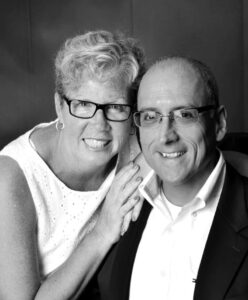
Honorable Robert Pipia and his wife, Maggie
What role has sports played in helping you develop your independence?
I think my leadership skills and that fight I have in me are from when I was in high school at Henry Viscardi School in Albertson, New York, for children with physical disabilities, and I played wheelchair hockey. We had a pretty extensive wheelchair hockey program, and I was a team captain. It was very competitive, so there were highs and lows. When we lost, there was a need to lead other teammates and motivate them. I think that helped me out a great deal when I went to university. I did the same thing there — dealt with people and tried to motivate them to do some of the things that we needed to do. And this led to all the other things that I’ve done as a leader.
What are some of the ways that you advocate for others with neuromuscular disease and help them find success?
I’ve had great opportunities to be involved with boards of organizations that I think are doing and will do amazing things for people with disabilities. Right now I’m able to serve on the boards of the Viscardi Center, Viscardi School, and MDA. These have been great honors and vehicles for me to give back into our community and to try to make a positive impact on it.
There’s also not a week that goes by that I don’t get a call from someone to discuss the situation of somebody with a disability, whether it’s about how to navigate the Social Security Administration, the Medicaid system, or a special needs trust. Although I’m not acting as an attorney, I talk to people about my experiences and how I did things.
Also, I advocate by just being visible and people hearing my story. I haven’t been to my church in two years because of the pandemic, but for eight years before that, at every four o’clock mass, I was a lector. People saw somebody with a disability doing what everybody else does.
Just by being visible, I think you help other people with disabilities, and you help people who aren’t disabled see what’s going on.
Another example is when I became a judge, I said, “We have to get the kids from my old high school to see me because that’s going to have an impact on them.” These kids have to see somebody with a disability participating at that level.
Do you have any words of wisdom for people with a neuromuscular disease who are getting ready to pursue a career?
Work hard. My parents were a great resource and always pushed me, and they told me, “Because of your disability, you’re probably going to have to work 10 times harder than everybody else to get to the same place.” That shouldn’t be the case. When I say that to the kids at the Viscardi School, I’m telling you, I hate it. But it is reality. And if you’re not able to deliver reality to people who need that guidance, you’re not worth your salt to them. It’s about working very hard, planning everything out, and being very realistic about what you’re going to face.
And when you fail, you have to get right back up and keep on going. You can’t take the first failure as a sign that you shouldn’t be going forward. People with disabilities who are successful, their mainstay is resilience.
Can you tell us about how you met your wife and got married?
I met my wife, Maggie, who does not live with a neuromuscular disease, at the Viscardi School in 1994. She was a teacher there, and I was there helping the students prepare for a mock trial. My friend introduced us, and we spent some time talking. I told my friend to give her my number and ask her to call me. She called me, and the rest is history. We got engaged in 1995 exactly one year after our first date, and we got married in July 1997.
Did you face any barriers in your relationship?
Yes. Someone who Maggie really looked up to asked her, “What are you doing? Why are you getting into this?” But Maggie is a really special person who has always seen people for who they are, and she and her family considered me an equal. But it wasn’t easy. People asked why we were together, and it was because we loved each other.
What advice do you have for others who want to pursue a romantic relationship?
If you like the person and it’s appropriate, you should tell them how you feel and propose going on a date. Don’t be shy to let your feelings be known. The way the other person reacts to you is on them. Look, there has to be some risk to the reward. Nothing is ever going to take that risk out of the equation. But it you like that person and it’s appropriate, you should go for it.
Learn more about setting goals and working toward success in “How to Set Goals for Personal Growth and Wellness” on the Quest blog.
TAGS: College, Community, Education, Employment, Relationships, Staying Active, Year of Independence
TYPE: Blog Post
Disclaimer: No content on this site should ever be used as a substitute for direct medical advice from your doctor or other qualified clinician.


